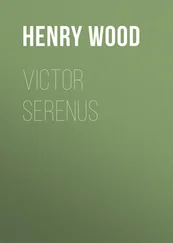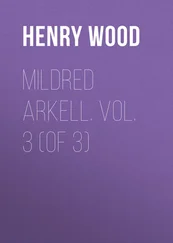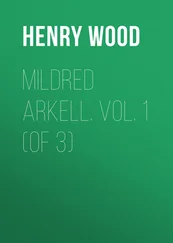Henry Wood - Verner's Pride
Здесь есть возможность читать онлайн «Henry Wood - Verner's Pride» — ознакомительный отрывок электронной книги совершенно бесплатно, а после прочтения отрывка купить полную версию. В некоторых случаях можно слушать аудио, скачать через торрент в формате fb2 и присутствует краткое содержание. Издательство: Иностранный паблик, Жанр: foreign_prose, literature_19, foreign_antique, на английском языке. Описание произведения, (предисловие) а так же отзывы посетителей доступны на портале библиотеки ЛибКат.
- Название:Verner's Pride
- Автор:
- Издательство:Иностранный паблик
- Жанр:
- Год:неизвестен
- ISBN:нет данных
- Рейтинг книги:4 / 5. Голосов: 1
-
Избранное:Добавить в избранное
- Отзывы:
-
Ваша оценка:
- 80
- 1
- 2
- 3
- 4
- 5
Verner's Pride: краткое содержание, описание и аннотация
Предлагаем к чтению аннотацию, описание, краткое содержание или предисловие (зависит от того, что написал сам автор книги «Verner's Pride»). Если вы не нашли необходимую информацию о книге — напишите в комментариях, мы постараемся отыскать её.
Verner's Pride — читать онлайн ознакомительный отрывок
Ниже представлен текст книги, разбитый по страницам. Система сохранения места последней прочитанной страницы, позволяет с удобством читать онлайн бесплатно книгу «Verner's Pride», без необходимости каждый раз заново искать на чём Вы остановились. Поставьте закладку, и сможете в любой момент перейти на страницу, на которой закончили чтение.
Интервал:
Закладка:
Mrs. Henry Wood
Verner's Pride
CHAPTER I.
RACHEL FROST
The slanting rays of the afternoon sun, drawing towards the horizon, fell on a fair scene of country life; flickering through the young foliage of the oak and lime trees, touching the budding hedges, resting on the growing grass, all so lovely in their early green, and lighting up with flashes of yellow fire the windows of the fine mansion, that, rising on a gentle eminence, looked down on that fair scene as if it were its master, and could boast the ownership of those broad lands, of those gleaming trees.
Not that the house possessed much attraction for those whose taste savoured of the antique. No time-worn turrets were there, or angular gables, or crooked eaves, or mullioned Gothic casements, so chary of glass that modern eyes can scarcely see in or out; neither was the edifice constructed of gray stone, or of bricks gone black and green with age. It was a handsome, well-built white mansion, giving the promise of desirable rooms inside, whose chimneys did not smoke or their windows rattle, and where there was sufficient space to turn in. The lower windows opened on a gravelled terrace, which ran along the front of the house, a flight of steps descending from it in its midst. Gently sloping lawns extended from the terrace, on either side the steps and the broad walks which branched from them; on which lawns shone gay parterres of flowers already scenting the air, and giving promise of the advancing summer. Beyond, were covered walks, affording a shelter from the sultry noontide sun; shrubberies and labyrinths of many turnings and windings, so suggestive of secret meetings, were secret meetings desirable; groves of scented shrubs exhaling their perfume; cascades and rippling fountains; mossy dells, concealing the sweet primrose, the sweeter violet; and verdant, sunny spots open to the country round, to the charming distant scenery. These open spots had their benches, where you might sit and feast the eyes through the live-long summer day.
It was not summer yet—scarcely spring—and the sun, I say, was drawing to its setting, lighting up the large clear panes of the windows as with burnished gold. The house, the ornamental grounds, the estate around, all belonged to Mr. Verner. It had come to him by bequest, not by entailed inheritance. Busybodies were fond of saying that it never ought to have been his; that, if the strict law of right and justice had been observed, it would have gone to his elder brother; or, rather, to that elder brother's son. Old Mr. Verner, the father of these two brothers, had been a modest country gentleman, until one morning when he awoke to the news that valuable mines had been discovered on his land. The mines brought him in gold, and in his later years he purchased this estate, pulled down the house that was upon it—a high, narrow, old thing, looking like a crazy tower or a capacious belfry—and had erected this one, calling it "Verner's Pride."
An appropriate name. For if ever poor human man was proud of a house he has built, old Mr. Verner was proud of that—proud to folly. He laid out money on it in plenty; he made the grounds belonging to it beautiful and seductive as a fabled scene from fairyland; and he wound up by leaving it to the younger of his two sons.
These two sons constituted all his family. The elder of them had gone into the army early, and left for India; the younger had remained always with his father, the helper of his money-making, the sharer of the planning out and building of Verner's Pride, the joint resident there after it was built. The elder son—Captain Verner then—paid one visit only to England, during which visit he married, and took his wife out with him when he went back. These long-continued separations, however much we may feel inclined to gloss over the fact, do play strange havoc with home affections, wearing them away inch by inch.
The years went on and on. Captain Verner became Colonel Sir Lionel Verner, and a boy of his had been sent home in due course, and was at Eton. Old Mr. Verner grew near to death. News went out to India that his days were numbered, and Sir Lionel Verner was instructed to get leave of absence, if possible, and start for home without a day's loss, if he would see his father alive. "If possible," you observe, they put to the request; for the Sikhs were at that time giving trouble in our Indian possessions, and Colonel Verner was one of the experienced officers least likely to be spared.
But there is a mandate that must be obeyed whenever it comes—grim, imperative death. At the very hour when Mr. Verner was summoning his son to his death-bed, at the precise time that military authority in India would have said, if asked, that Colonel Sir Lionel Verner could not be spared, death had marked out that brave officer for his own especial prey. He fell in one of the skirmishes that took place near Moultan, and the two letters—one going to Europe with tidings of his death, the other going to India with news of his father's illness—crossed each other on the route.
"Steevy," said old Mr. Verner to his younger son, after giving a passing lament to Sir Lionel, "I shall leave Verner's Pride to you."
"Ought it not to go to the lad at Eton, father?" was the reply of Stephen Verner.
"What's the lad at Eton to me?" cried the old man. "I'd not have left it away from Lionel, as he stood first, but it has always seemed to me that you had the most right to it; that to leave it away from you savoured of injustice. You were at its building, Steevy; it has been your home as much as it has been mine; and I'll never turn you from it for a stranger, let him be whose child he may. No, no! Verner's Pride shall be yours. But, look you, Stephen! you have no children; bring up young Lionel as your heir, and let it descend to him after you."
And that is how Stephen Verner had inherited Verner's Pride. Neighbouring gossipers, ever fonder of laying down the law for other people's business than of minding their own, protested against it among themselves as a piece of injustice. Had they cause? Many very just-minded persons would consider that Stephen Verner possessed more fair claim to it than the boy at Eton.
I will tell you of one who did not consider so. And that was the widow of Sir Lionel Verner. When she arrived from India with her other two children, a son and daughter, she found old Mr. Verner dead, and Stephen the inheritor. Deeply annoyed and disappointed, Lady Verner deemed that a crying wrong had been perpetrated upon her and hers. But she had no power to undo it.
Stephen Verner had strictly fulfilled his father's injunctions touching young Lionel. He brought up the boy as his heir. During his educational days at Eton and at college, Verner's Pride was his holiday home, and he subsequently took up his permanent residence at it. Stephen Verner, though long married, had no children. One daughter had been born to him years ago, but had died at three or four years old. His wife had died a very short while subsequent to the death of his father. He afterwards married again, a widow lady of the name of Massingbird, who had two nearly grown-up sons. She had brought her sons home with her to Verner's Pride, and they had made it their home since.
Mr. Verner kept it no secret that his nephew Lionel was to be his heir; and, as such, Lionel was universally regarded on the estate. "Always provided that you merit it," Mr. Verner would say to Lionel in private; and so he had said to him from the very first. "Be what you ought to be—what I fondly believe my brother Lionel was: a man of goodness, of honour, of Christian integrity; a gentleman in the highest acceptation of the term—and Verner's Pride shall undoubtedly be yours. But if I find you forget your fair conduct, and forfeit the esteem of good men, so surely will I leave it away from you."
Читать дальшеИнтервал:
Закладка:
Похожие книги на «Verner's Pride»
Представляем Вашему вниманию похожие книги на «Verner's Pride» списком для выбора. Мы отобрали схожую по названию и смыслу литературу в надежде предоставить читателям больше вариантов отыскать новые, интересные, ещё непрочитанные произведения.
Обсуждение, отзывы о книге «Verner's Pride» и просто собственные мнения читателей. Оставьте ваши комментарии, напишите, что Вы думаете о произведении, его смысле или главных героях. Укажите что конкретно понравилось, а что нет, и почему Вы так считаете.












